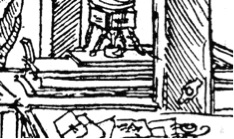Event
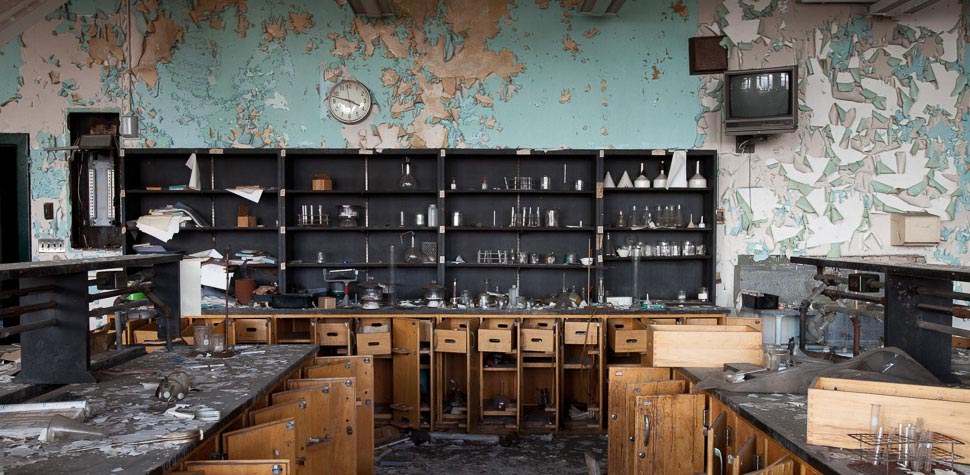
A plug for an event organised by our colleagues in HOMELandS, the Hub for Migration, Exiles, Languages and Spaces, based at the University of Westminster.
Wednesday 28th October 2015, 4-6 pm
Westminster Forum, University of Westminster, Wells Street London W1T 3UW
“Diaspora in the Field of Vision”
Margherita Sprio, Centre for Research and Education in Arts and Media
Contemporary art practices that have emerged out of the existing art school structure in Britain have enabled a multitude of emerging practices to be given the current status that they hold in debates about visual culture. Diasporic artists since post war education expansion in Britain have become visible in small but significant numbers – in part supported by those sympathetic to the politics of educational equality. But also, supported by those for whom education and Diasporic experience were the life line that enabled both the art practices that now constitute contemporary art and also the critical debates that are now common place within contemporary art education. This paper will address some of the key issues that have been made apparent in the work of some contemporary Diasporic artists who live, work and have studied/study in London in relation to ideas of displacement migration, power and ethics.
Dr Margherita Sprio is a Senior Lecturer in Film History and Theory at University of Westminster and works on film practice and theory as well as the relationship of film theory to photography, contemporary art and philosophy. She is the author of Migrant Memories: Cinema and the Italian Post War Diaspora in Britain (Peter Lang, 2013).
The event is free and open to the public. Non-University of Westminster attendees please register with Cangbai Wang atc.wang6@westminster.ac.uk
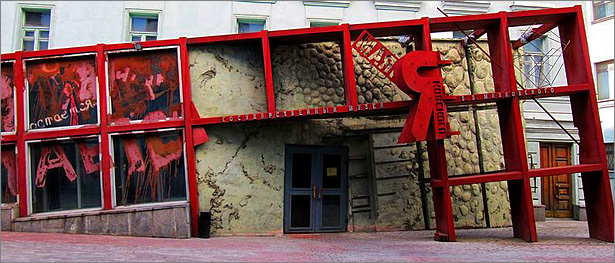
Following on nicely from the IMCC’s event on Marx-Form-Isms held at Westminster in June this year, our colleague Charles Denroche is speaking at an Institute for English Studies colloquium entitled Form and Poetry: An Exploration of Russian Formalism – ostranenie, city poetics, metaphor, metonymy – at Senate House on October 23rd, 10.00-5.30. Further details here.
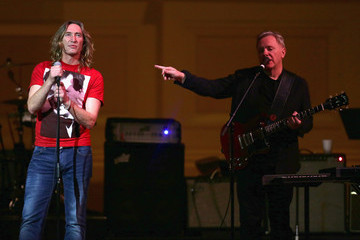
The Centre for Law Society and Popular Culture, in conjunction with the Department of English, Linguistics and Cultural Studies is delighted to announce an international poetry event to be held at the University of Westminster on 13th October.
Hosted by the University of Westminster’s spoken word Artist in Residence, Mike Garry, “The Shaken and the Stirred”, a group comprising four renowned Canadian poets and novelists, will present their work in a public reading. The group, sponsored by the Centre for Creative Learning in Canada, includes prize winning authors Jeanette Lynes, Steven Heighton, Ian Burgham and Catherine Graham reading from their recently released and upcoming collections. For more on Mike Garry, including news of his recent Saint Anthony project, see here
These writers, all of whom have been recognized internationally, not only represent some of the best work being produced in Canada, but demonstrate a wide range of the types of poetry and themes that currently can be found in the Canadian literary landscape.
Free tickets available at this link.

Monday 8 June, 9.00 – 19.00
The Pavilion, University of Westminster, New Cavendish Street, London
TRACES
3rd Joint Researching the Arts, Social Sciences & Humanities Conference
A Postgraduate conference, co-organised by Brunel University London and the University of Westminster
9:15 – 10:30 Ineffable Representations and Potentiality of Voice
Jaice Sara Titus, Sebastian Jenner, Jessica Worden
10:45 – 12:00 Unraveling Traces of Power and Conflict
Miriam Tedeschi, Simon Mcleod, Alejandra Perez
12:00 – 13:30 Vestiges and Reinterpretations of Marginalization
Lewis Church, Haein Song, Uyoyo Onemu, Gift Nyoni
13:30 – 14:30 Lunch
14:30 – 15:45 Retracing Accounts for Womanhood
Pernille Rubner-Peterson, Sarah Ann Milne, Suneel Mehmi
15:45 – 16:45 Tracing Aesthetics and Ethics
Marijana Nedeljkovic, Alice Tuppen
17:00 – 18:00 Keynote: Dr David Cunningham
“Traces of Capital, or, Are Some Things Unrepresentable?”
18:00 – 19:00 Prize Giving and Reception
Full programme here: Traces_Programme_1.

Thursday 4 – Friday 5 June
University of Westminster and Senate House, London
Marx, Form, Isms
A Re-Enactment of the 1920s Debates
Presented by the Retro-Formalism Group in cooperation with Marxism in Culture (University of London) and the Institute for Modern and Contemporary Culture (University of Westminster)
‘Marx, Form, Isms’ continues the work of the Retro-Formalism working group on literary theory, with a specific focus on political debates. Rather than reconstructing the historical debate of the 1920s between Marxist and Formalist thinkers on how political action and experimental literature might be intermingled, the event would like to open up the text archive of formalist and Marxist thought for today and future purposes in search of an unpredictable past. Beginning with the 1920s debates in the Soviet Union, through the recovery of Formalist theory in Europe through Structuralism in 1960s and 1970s, and renewed interest in cultural critique post-1968 and in the New Left, to the contemporary revivals of discussion of form and value-form in Culture and Marxism, ‘Marx, Form, Isms’ aims to explore historical valences of Formalist theory in relation to Marxist thought.
Thursday June 4th
The Boardroom, University of Westminster, 309 Regent Street, London W1T
5:30 – 7.30 pm Keynote Lecture: John Roberts (University of Wolverhampton)
Shklovsky, Error and the End of Saint Petersburg
Friday June 5th (day event)
Room 401, University of Westminster, 309 Regent Street, London W1T
10-11am Close Reading workshop on Osip Brik’s, “The So-Called Formalist Method” (1923)
Text: osip-brik-the-so-called-formal-method-1
Presented by Anke Hennig (CSM), David Cunningham (IMCC), Anthony Iles (Mute)
11:15-12:15 Panel I: Updating the Marxism-Formalism Debate
Galin Tihanov (Queen Mary, London) Formalism and Soviet Power: A Necessary Reconsideration
Anke Henning (Central Saint Martins) Trotsky on Strindberg
12:15-1.15pm lunch
1.15-.145pm Panel II: Marxism and Formalism Today
Helen Palmer (Goldsmiths College, London) Queering Defamiliarization: Marxism, Manifestos and Matter
2-3:30pm Film Screening of Duncan Campbell It for Others (54mins)
Chaired by Anthony Iles
Friday June 5th (evening event)
Marxism in Culture Seminar, Torrington Room, Senate House, University of London
5:30 – 7.30 pm Final Roundtable: A Re-enactment of the Marxism-Formalism Debate
Participants: David Cunningham, Anke Hennig, Anthony Iles, Jan Levchenko, Marina Vishmidt
For more details please see the RetroFormalism website at: http://retroformalism.net/en/start

Wednesday 1st April, 4.15 pm
Room 215, University of Westminster, Wells Street, London W1T
“Bataille’s Vampire”
Professor Fred Botting, Kingston University
This paper follows a footnote in a short essay by Georges Bataille to examine the significance of his apparent interest in a notorious German serial killer of the 1920s and 1930s.
Fred Botting has written extensively on Gothic fictions, and on theory, film and cultural forms. His books include Gothic Romanced (2008), Limits of Horror (2008) and, with Scott Wilson, Bataille (2001).
All welcome!

Wednesday 1st April, 1-3 pm
University of Westminster, Room 106, 32-38 Wells Street, London W1T
“Technology, Desire, and Cruel Optimism: MTV’s Catfish: The TV Show”
Dr Sam McBean, Queen Mary, University of London
Taking the seminar series’ invitation to ruminate ‘On Desire’, this paper will consider the affective textures of a contemporary digital moment, focused in particular on how fantasies of desire become entangled with technology, particularly social media. The paper argues that, increasingly, narratives of technology are being mobilized to speak the narrative failings of enduring love. To explore this convergence, I will focus on MTV’s Catfish: The TV Series. Each episode of Catfish sees the co-hosts, Nev and Max, come to the rescue of someone who has been engaged in an online relationship with a partner who has been resistant to meeting in person. As online detectives, the co-hosts uncover the “truth” about this relationship – more often than not revealing that the beloved is not who they say they are. Lauren Berlant understands desire as ‘a state of attachment to something or someone’ and similarly suggests that ‘[a]ll attachment is optimistic’. Attachment becomes ‘cruelly optimistic’ when rather than enabling the self-flourishing of an individual, it becomes a barrier. The paper will explore how an attachment to a narrative of love – desire’s reciprocated ideal – and to a narrative of technology’s ability to provide this, functions in Catfish despite the repetition (in each episode and across the series as a whole) of the likely failure of both narratives.

Wednesday 25th March, 4.15 pm
Room 106, University of Westminster, Wells Street, London W1T
“Luxury and Visual Culture: On the Semiology of the Bubble Bath”
Professor John Armitage, Winchester School of Art
Luxury, abundance, and sumptuous enjoyment influence visual culture and the objects of study to which visual culture attends from art history to new media. This illustrated seminar explores various forms of indulgence and visual culture’s range of responses from images of ‘English’ luxury to images of lasciviousness and the images of ‘luxury cinema’, before going on to analyze the semiology of the bubble bath. The paper circumvents ideas relating to ideology and to the critique of consumer culture, preferring instead to concentrate on how matter dissolving becomes endowed with cultural values of cleanliness and how the foamy becomes a sign of everything from debauchery and health to happiness and even spiritual transformation. Participants are encouraged to bring their own bubbles.
John Armitage is Professor of Media Arts at Winchester School of Art-University of Southampton. John is currently co-editing Critical Luxury Studies: Art, Design, Media for Edinburgh University Press, The Luxury Reader for Bloomsbury, and writing Luxury and Visual Culture for Bloomsbury. He is the founder, and co-editor, with Ryan Bishop and Douglas Kellner, of the journal Cultural Politics.
Wednesday 11th March, 1-3 pm
Room 357, University of Westminster, Regent Street, London
“Consent, Normativity and Victim Blame”
David Gurnham, University of Southampton
The next in the Faculty of Social Sciences and Humanities seminar series of Desire at the University of Westminster. All welcome!
David Gurnham uses popular and classical texts, by authors including Shakespeare, Dickens, Euripides, Kafka, the Brothers Grimm, Huxley and Margaret Atwood to shed fresh light on such controversial legal and ethical issues as passionate homicide, life sentences, pornography and genetic enhancement. Gurnham’s overarching theme is the role of memory and imagination in shaping legal and ethical attitudes. Along this line, he examines the ways in which past wrongs are “remembered” and may be forcefully responded to, both by the criminal justice system itself and also by individuals responding to what they regard as gross insults, threats or personal violations.

Mnemonics 2015: Memory and Materialism
London, September 8 – 10, 2015
The IMCC is delighted to announce its participation in both the Mnemonics: Network for Memory Studies and (with colleagues at Goldsmiths and Kings) the London Cultural Memory Consortium with the following Call for Papers for the Mnemonics summer school to be held in London this September.
Call for papers: For the fourth edition of its annual summer school, the Mnemonics network, an international collaborative initiative for graduate education in memory studies, invites paper proposals that address the relations between materialities and cultural memory. The study of cultural memory is well versed in analyzing the material traces of the past. From the manifold historical objects that continue to inhere in the present as artifacts, ruins, traces, or even present absences, to the ways in which different representational media frame contemporary understandings of particular events through those objects, the discourses of memory studies have proven adept at investigating the use, circulation, value, and affect of historical remnants in processes of cultural remembrance. However, memory studies has so far been less attentive to the actual materiality of these objects. Accordingly, Mnemonics 2015 seeks to unearth the materials and matter that have been overlooked by present regimes of cultural memory, in theory and practice. By tracking their historical and cultural trajectories, we aim to chart the ways in which materials change over time and usage, examining the processes through which matter may be made to assemble, disassemble, metamorphose, and even disappear, to reinforce or challenge hegemonic constructions of memory and history.
Full Call for Papers can be downloaded here: Mnemonics 2015 cfp
Confirmed keynote speakers: Professor Stef Craps (Ghent University); Dr Joanne Garde-Hansen (University of Warwick); Professor Ursula Heise (UCLA); Professor Alex Warwick (University of Westminster)
Fees: £250 including accommodation in central London; £100 excluding accommodation.
All fees cover: attendance; all breakfasts, lunches, refreshments, and conference dinner.
Send: A 300-word abstract for a 15-minute paper (including title, presenter’s name, and institutional affiliation), a description of your graduate research project (one paragraph), and a short CV (max. one page) as a single Word document to: r.crownshaw@gold.ac.uk
Deadline: 1 April 2015.
Notification of Acceptance: 1 May 2015
The Mnemonics summer school serves as an interactive forum in which junior and senior memory scholars meet in an informal and convivial setting to discuss each other’s work and to reflect on new developments in the field of memory studies. The objective is to help graduate students refine their research questions, strengthen the methodological and theoretical underpinnings of their projects, and gain further insight into current trends in memory scholarship. Each of the three days of the summer school will start with a keynote lecture, followed by sessions consisting of three graduate student papers, responses, and extensive Q&A. In order to foster incisive and targeted feedback, all accepted papers will be pre-circulated among the participants and each presentation session will be chaired by a senior scholar who will also act as respondent.
Mnemonics: Network for Memory Studies is a collaborative initiative for graduate education in memory studies between the Danish Network for Cultural Memory Studies; the Swedish Memory Studies Network; and programs at Ghent University (Belgium); Goethe University Frankfurt (Germany); The London Cultural Memory Studies Consortium (IMCC, Westminster; Goldsmiths; Kings); the University of Illinois at Urbana-Champaign (USA); and Columbia University (USA, associate partner).
Further information about the network is available from the Mnemonics website at http:// mnemonics.ugent.be/.
Mnemonics on Facebook: http://www.facebook.com/groups/mnemonics.network/
Mnemonics on Twitter: @mnemonics_net
For more information on Mnemonics 2015, contact Lucy Bond at l.bond1@westminster.ac.uk
A more detailed Call for Papers is attached here: Mnemonics 2015 cfp.

Wednesday 4th March, 4.15 pm
Room 215, University of Westminster, Wells Street, London W1T
“Speechless Shakespeare”
Gwylim Jones, University of Westminster
In the opening scene of A Midsummer Night’s Dream, Theseus says to Hippolyta: ‘I … won thy love, doing thee injuries, / But I will wed thee in another key’. The bride-to-be has no more lines in the scene. Similarly, Measure for Measure’s Isabella is bereft of words to respond to the Duke’s abrupt wooing in the play’s finale. These are just two of Shakespeare’s great suggestive silences – rich and ambiguous spaces for actors and directors to fill – and their presentation on the stage can characterise the production as a whole.
These moments, key to rehearsal rooms and theatre reviews, have received little attention from literary and performance scholars. When the silences are less obvious – Claudio’s in Measure is even more capacious than Isabella’s – the response is even slighter. This leaves many questions unanswered. How does the acknowledgement of silence affect our approach to the re-emerging emphasis on character? Or on Shakespeare’s engagement with rhetoric? How did Shakespeare’s treatment of silence develop over his career? This paper will examine some of the ways in which silence can be read in the work of Shakespeare and his contemporaries, and will show how these writers develop and manipulate silences in order to represent authority and interiority.

Wednesday 25th February, 1-3 pm
Room 357, University of Westminster, Regent Street, London
“The Queer Art of Crisis”
Nicola Smith, University of Birmingham
The third in the Faculty of Social Sciences and Humanities seminar series of Desire at the University of Westminster. All welcome!
Nicki Smith is Senior Lecturer in Political Science at the University of Birmingham and has published on a range of issues surrounding globalisation and social justice. She is currently writing a monograph on Queer Sexual Economies for Palgrave and has published articles in Sexualities, Third World Quarterly and the British Journal of Politics and International Relations.
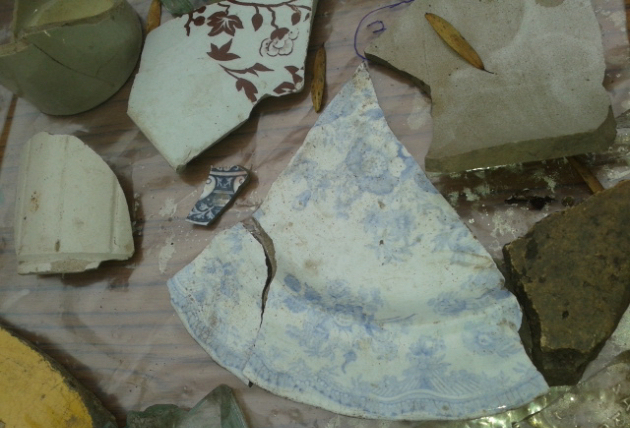
Wednesday 18 February, 6.00 pm
Fyvie Hall, University of Westminster, 309 Regent Street, London
Professor Alex Warwick, “An Unnatural History of London”
An invitation to our own Alex Warwick’s inaugural professorial lecture at Westminster.
Archaeology had a profound impact on Victorian culture. As it emerges as a professional scientific practice in itself, it is also implicated in many of the century’s important debates. From the dramatic excavations at Pompeii in the late eighteenth century, through the arrivals of impressive objects like those found in Mesopotamia by Austen Henry Layard, to the troubling discoveries of human remains alongside extinct animals, archaeological digging produced objects and ideas that disturbed, excited and entertained the Victorians. The excavated cities held a special fascination, not least through the suggestive effect of the presence of the fragments of once-powerful lost civilizations in London’s museums and galleries. At the same time, London’s own buried history made its way to the surface.
As engineers dug foundations for new buildings or constructed tunnels for the underground railway, the new sewer system or gas pipes to light the street, they uncovered the cities of former times, paradoxically drawing attention to the antiquity, even the pre-history, of London. Just as the modern fabric of London is built on its own ruins, so archaeology proved a powerful force in negotiating the new conditions of capitalist modernity.
In the writings of archaeologists themselves, and in fiction, poetry and other popular texts of the period, archaeological objects, processes and sites become a means of engagement with the present and the unprecedented changes taking place. That nineteenth-century engagement continues to influence us now, more than a hundred years later.
Tickets for this event are free of charge, please register online.

Wednesday 4th February, 4.15 pm
Room 215, University of Westminster, Wells Street, London W1T
“The Two Faces of Memory”
Professor Mark Currie, Queen Mary, University of London
In My Struggle, Knausgaard claims to remember nothing from his early life while producing volumes of detailed memory. This paper aims to establish philosophical co-ordinates for this paradox, in the relationship between memory and imagination, the dynamic of remembering and forgetting, and the externalization of memory. It draws on the work of Bernard Stiegler and his elaboration of retentional finitude in Time and Technics. The argument focuses on the motif of the face in Knausgaard, as an object of recollection, and as a mode of enquiry into the nature of memory.
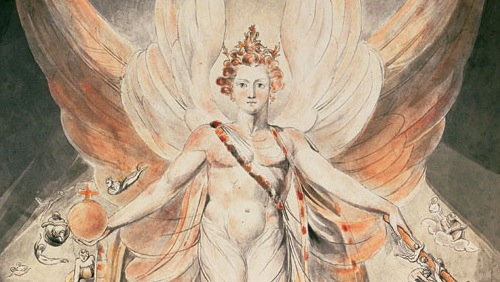
Building on the success of last year’s series on Violence, the Faculty of Social Sciences and Humanities at Westminster is pleased to announce a new series of open and interdisciplinary seminars this semester on the theme of desire ..
All seminars will be held in room 357 in the University of Westminster’s Regent Street building from 1-3pm. All welcome.
Wednesday 4 February:
Naomi Segal, Birkbeck, University of London
“Taking Your Skin-Ego for a Walk”
Wednesday 11 February:
Maria Aristodemou, Birkbeck, University of London
“Desire – Law = Disquiet”
Wednesday 18 February:
Phil Carney, University of Kent
“Desire and Power in the Spectacle”
Wednesday 25 February:
Nikki Smith, University of Birmingham
“The Queer Art of Crisis”
Wednesday 4 March:
Sam McBean, Queen Mary, University of London
“Technology, Desire and Cruel Optimism: MTV’s Catfish”
Wednesday 11 March:
David Gurnham, University of Southampton
“Consent, Normativity and Victim Blame”
Wednesday 18 March:
Helen Palmer, Goldsmiths, University of London
tbc
Wednesday 25 March:
Victoria Brooks and Adam Eldridge, University of Westminster
“On Desire”

The IMCC is very happy to publicise the first Queer London Research Forum event of 2015: a talk by the Wellcome Library’s Lesley A. Hall, entitled ‘‘‘Bearded Fruit-Juice Drinkers”: the Queerness of Interwar Progressives’. The talk will take place on 9th February at 18:30 in the Cayley Room (room 152) in the University of Westminster’s building at 309 Regent Street and will be followed by a wine reception. Attendance is free, but places must be booked; please email queerlondonresearchforum@gmail.com to confirm your place.
Abstract: “There was a significant mass of individuals and organisations in Britain between the wars, concentrated in the metropolis, who were widely perceived as ‘queer’ both in the contemporary popular sense of generally eccentric and cranky and also on account of their contravention of gender and sexual norms. This paper will look at the ways this somewhat amorphous group destabilised prevalent assumptions of the day, with particular attention to the ways in which they were felt to be violating hegemonic masculinity, whether through belief in pacifism, a dedication to vegetarianism, unconventional personal fashion style, or enjoyment of such unmanly forms of exercise as yoga and folk-dancing, alongside their liberal attitudes towards homosexuality and on other matters of sexual conduct.”
Lesley Hall, FRHistS, PhD, is Senior Archivist at the Wellcome Library and Honorary Lecturer in History of Medicine, University College London. She is the author of numerous works on gender and sexuality in nineteenth and twentieth century Britain, including Sex, Gender, and Social Change in Britain since 1880 , The Life and Times of Stella Browne: Feminist and Free Spirit and Ouspoken Women: Women Writing About Sex, 1870-1969.
The Contemporary Small Press: A Symposium
The Boardroom, 309 Regent Street, University of Westminster
10:00-17:00
The Contemporary Small Press Book Fair
The Fyvie Hall, 309 Regent Street, University of Westminster
18:00-21:00
Friday 20th February 2015
The last decade has witnessed a turn to considering the legacies of modernism prevalent and operative within contemporary literature and culture. Within the scholarly discourses surrounding this shift, there has been little discussion of the status of the small press in the twenty-first century, and its vital role in the dissemination of avant-garde writing. This symposium seeks to address the role and status of the small press in the UK as a field of academic enquiry. We aim to offer a forum that will bring together a number of small presses, and facilitate productive dialogue between the diverse publishers working with contemporary innovative writers and poets.
The day symposium consists of three panels of scholars, publishers, writers, and poets, which will explore the history of the small press, literary politics and the relationship between the small press and the mainstream, and take up issues surrounding materialities of the text and small press publishing. The Contemporary Small Press Book Fair following the symposium will showcase and market the rich and varied work currently being published by small presses.
Poets and writers reading from their work throughout the day, and into the evening, include Carol Watts, Peter Hughes, Toby Litt, Robert Hampson, Jennifer Cooke, Nicholas Royle, Amy Cutler, Rod Mengham, Tony White, and Michael Nath.
Participating presses include Oystercatcher Press, Reality Street, Route, Veer Books, Comma Press, and Equipage.
A collection of new writing by writers and poets taking part in the symposium, outLINES: from the Small Press, published in collaboration with Oystercatcher Press, will be available on the day.
The symposium is free to all but booking is essential. Places for the symposium can be reserved through Eventbrite: https://eventbrite.co.uk/event/15401181348/
For further details about the conference, or if you are the editor of a small press and would like to take part in the Book Fair, please contact Leigh Wilson (wilsonl@westminster.ac.uk), or Georgina Colby (g.colby@westminster.ac.uk).

Radical Philosophy Berlin Conference 2015
5 4 3 2 1…
Friday 16 – Saturday 17 January
Haus der Kulturen der Welt, Berlin
Die Radical Philosophy Conference, 2015 erstmals in Deutschland, widmet sich zentralen Themen unserer Zeit. Am Freitag, dem 16. und Samstag, dem 17. Januar diskutieren internationale Vortragende mit verschiedenen disziplinären Hintergründen die Themen Acceleration & the New, Artistic Strike, Secrecy & Surveillance, Queer Theory & Geopolitics, Pedagogization, Philosophy of the Essay-Film, Animalities, On Organization.
With Fahim Amir, Claudia Aradau, David Blacker, Christa Blümlinger, Victoria Browne, Gregoire Chamayou, Matthew Charles, Claire Fontaine, David Cunningham, Antke Engel, Frank Engster, Arianna Ferrari, Peter Hallward, Gertrud Koch, Esther Leslie, Stewart Martin, Mark Neocleous, Peter Osborne, Silvia Posocco, Nina Power, Rahul Rao, Frank Ruda, Nora Sternfeld, Hito Steyerl, Chris Wilbert, and Burkhardt Wolf. More…
Free download of the Radical Philosophy iOS app is available at the Haus der Kulturen der Welt until the 1 February. More…
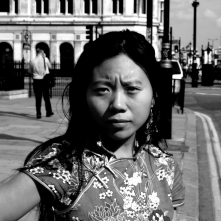
Understanding China, the Country and the Myth
February 28 2015, 11.00-12.00
Guidhall, Bath
The IMCC’s Anne Witchard is speaking at the Bath Literature Festival alongside author and film-maker Xiaolu Guo, who called her most personal novel to date, I am China, a “goodbye love letter to China”. The event is chaired by Isabel Hilton.
Tickets £8, or £7 for reductions.

Radical Philosophy Berlin Conference 2015
5 4 3 2 1…
Friday 16 – Saturday 17 January
Haus der Kulturen der Welt, Berlin
For our German friends, the journal Radical Philosophy will be holding its regular mega-conference in Berlin next year, with speakers including the IMCC’s own Matt Charles and David Cunningham. Other participants include Christa Blumlinger, Gregoire Chamayou, Claire Fontaine, Peter Hallward, Gertrud Koch, Esther Leslie, Mark Neocleous, Peter Osborne, Nina Power, Frank Ruda, Hito Steyerl, and many others.
Further details on the HKW website at:
http://www.hkw.de/en/programm/projekte/2015/radical_philosophy/radical_philosophy_start.php


The Institute for Modern and Contemporary Culture
University of Westminster Department of English, Linguistics and Cultural Studies
32-38 Wells Street, London W1T 3UW. United Kingdom.

